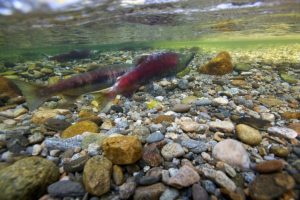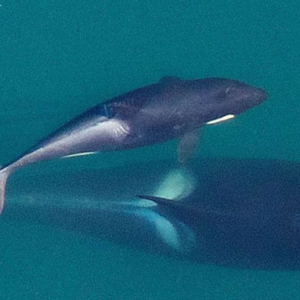Nature Canada calls on Fisheries and Oceans Committee to Strengthen the Fisheries Act

Adam Bond
Nature Canada is calling on the House of Commons Committee on Fisheries and Oceans (FOPO) to recommend that the Fisheries Act be amended to account for cumulative effects of works, undertakings and activities that harm fish habitat as well as enhance the standard for protecting fish habitat.
As part of the Government of Canada’s environmental law reform process, FOPO is reviewing lost protections under the Fisheries Act and consulting with Canadians on how to address concerns about the protection of fish and fish habitat. Nature Canada’s brief to FOPO contains six important recommendations, including the need for the Act to respect Indigenous rights; articulate its purposes; trigger environmental assessments where appropriate; clearly define “emissions”; revert to the harmful alteration, disturbance or destruction (HADD) standard for habitat protection; and account for cumulative effects on fish habitat.
Currently, the Act prohibits works, undertakings and activities that results in serious harm to fish that are part of a commercial, recreational or Aboriginal fishery unless an exception is provided. By reverting to the HADD standard which applied prior to the 2012 amendments of the Act, Parliament can ensure a higher standard of protection for fish habitat.

Photo of a Sockeye Salmon
The 2012 amendments diminished the scope of section 35 prohibitions on harm to fish by limiting the protections from prohibitions on harm to any fish habitat to prohibitions only on serious harm to fish that are part of a commercial, recreational or Aboriginal fishery. The “serious harm standard” that replaced the HADD standard in the 2013 amendments fails to take into consideration the impacts of harmful alterations, disruptions and destruction of fish habitat on fish unless each impact independently constitutes a “serious harm”.
Limiting the scope of section 35 to prohibit serious harm only to commercial, recreational or Aboriginal fisheries boldly ignores the nature of ecosystems and the complex and dynamic relationships between organisms in their ecosystems.
Sustainable management of fisheries can only be achieved through policies that are informed by science and evidence. The cumulative effects of diverse anthropogenic environmental stresses on aquatic ecosystems must be accounted for under the Fisheries Act. The Act must look beyond the impacts of individual activities to gain a more holistic understanding of the cumulative effects of the multitude of stressors that are degrading fish habitat and undermining the stability of fish stocks. As well, the pressures of climate change on oceans, such as temperature or coastal changes and water acidification work synergistically with other impacts such as pollution, plastics, noise and geophysical alteration to harm fish and fish habitat. Stock must be taken of these environmental impacts and this information must inform decision making under the Act.
Failing to monitor and protect fish habitat against the direct and cumulative impacts of human activities on fish and fish habitat will undermine efforts to protect, restore or responsibly manage Canadian fisheries. The FOPO has an opportunity to recommend amendments to the Fisheries Act that restore and enhance protection for our fisheries.



